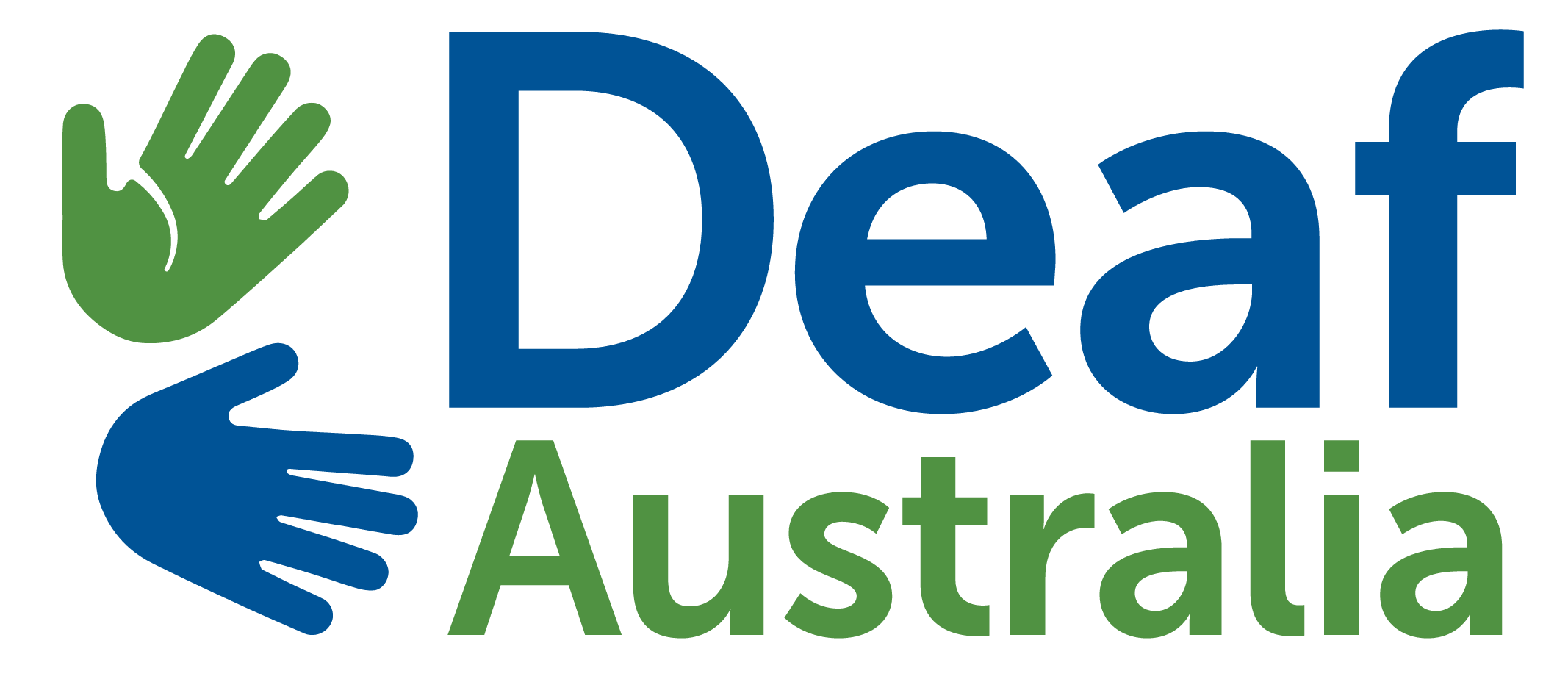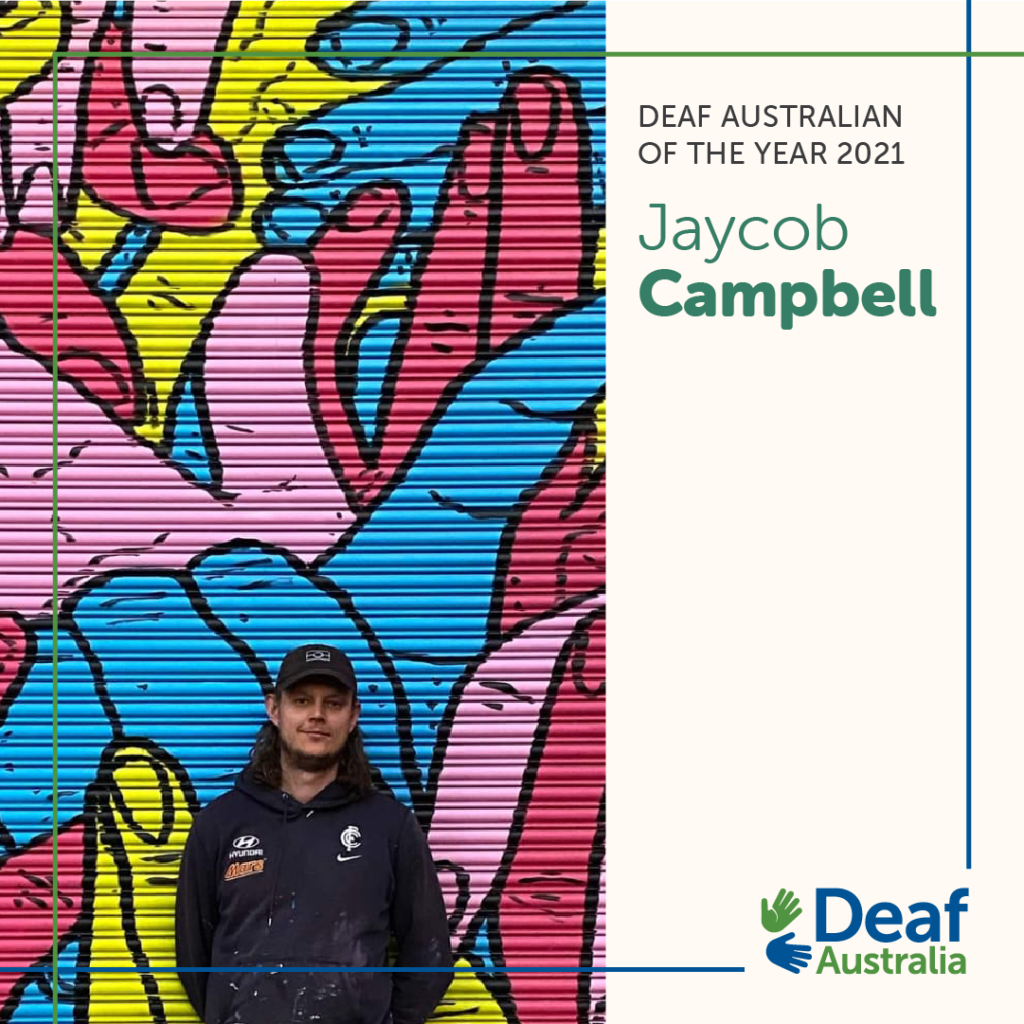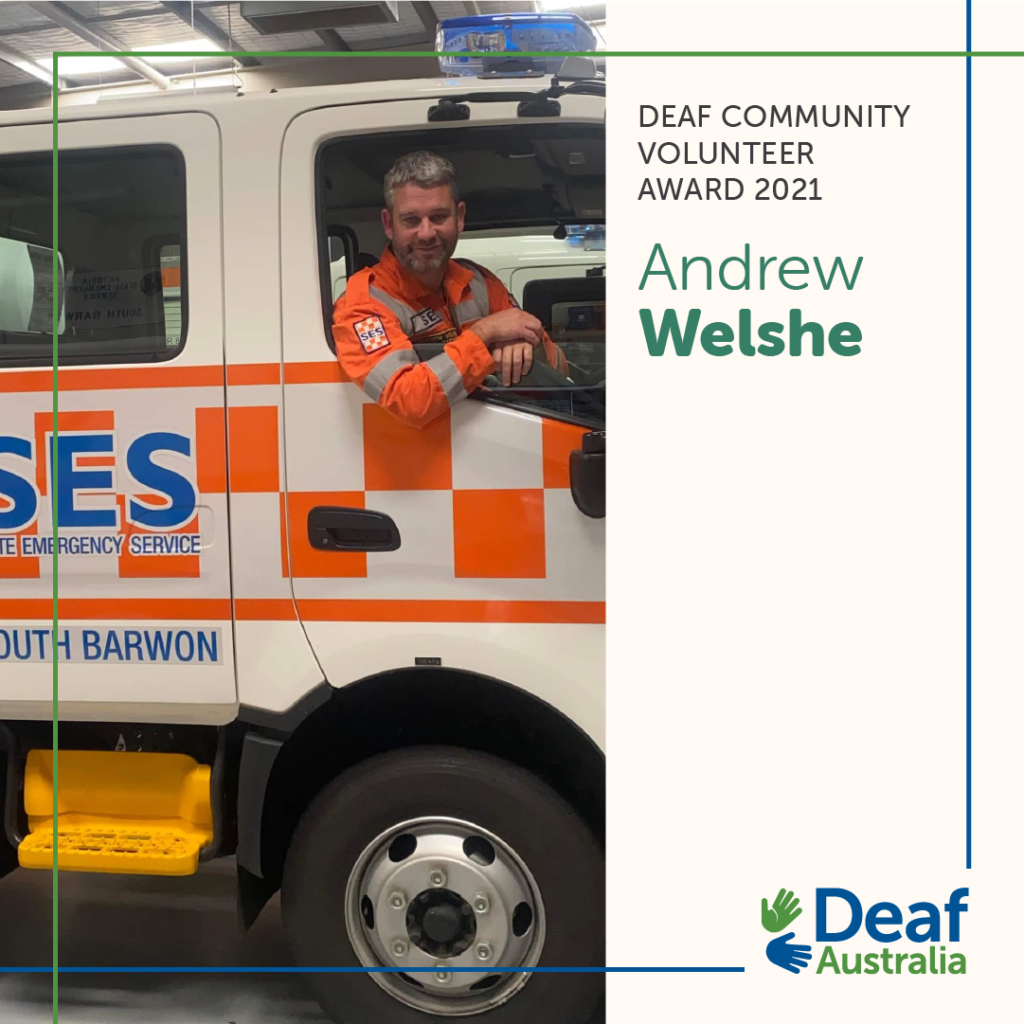No products in the cart.
Category: Uncategorized
Deaf Australia Board
Please welcome Ms Debra Swann (SA), the Chairperson, for Deaf Australia.

Ms. Debra Swann has work in NSW, Vic and South Australia (where she is currently residing). Debra has been involved in a number of volunteering and committee positions over the years both within the Deaf community and mainstream organisations. She has also worked for a number of different Deaf organisations as well as other organisations in the disability sector and is well aware of the many challenges within the Deaf Community.
Ms Swann is currently studying a Master in Counselling with the Australian Institute of Professional Counsellors. In addition to her qualifications, she has acquired Masters of Social Work and Bachelor of Human Services (both from La Trobe University) and Diploma of Community Services (Mental Health, Alcohol and Other Drugs) from TAFE Gippsland.
It is a privilege to be elected as Chairperson of Deaf Australia as I am keen to work with the Deaf Community and other stakeholders to ensure that Deaf Australia remain to be the representative organisation of the Deaf Community.
Ms. Debra Swann, Chairperson
The Board will be supported with Mr. Rodney Adams (NSW) and Mr. Adrian Doyle (Vic). The board welcome your suggestions, ideas or improvements for Deaf Australia to better serve the Deaf Community.
The Colin Allen AM Lecture – 2020
When: 18 September 2020 at 7.30pm AEST
Cost:
- $15.00* – member of Deaf Australia (Members will receive 10% after the event.)
- $16.50 – non-member.

Deaf Theatre: Yesterday, today … tomorrow?
Ms. Caroline Conlon was the Artistic Director of Australian Theatre of the Deaf (ATOD) and had been involved with the organisation in other roles for nearly 20 years. She has appeared in mainstream Australian television drama shows and other productions which promote the talent of deaf actors in this industry. She was part of the team that created and produced SignPost, an award winning TV program that delivered Auslan infotainment on Ch 31.
Caroline also worked in Western Africa, Vietnam, Laos, and Samoa delivering capacity building training to National Deaf Associations and organisations servicing respective Deaf communities. Caroline also led a Scope Global pilot volunteer disability project team to Fiji with the intention to promote disability awareness.
She has a passion around protecting the heritage of Auslan and sharing this correctly with learners. Caroline currently works as an Auslan Instructor with Deaf Can:Do and has successfully changed their culture of Auslan teaching into an energetic and learnable language while ensuring students inherit a respect for Auslan.
Interpreter and captioning provided.
Interpreter on TV
Since the Bushfires last year, Deaf Australia sent letters to Premiers and Prime Minister reminding them their obligations to provide interpreters on TV, obligation outlined in the United Nations’ Convention on the Rights of Persons with Disability.
This has been supported by a research conducted by Curtin University where they demonstrated that live captioning is riddled with errors. This presents Deaf Australia with tangible evidence for the need of Auslan interpreter in these announcements.
Since then, most briefings from Prime Minister’s Office and Premier’s Offices include interpreters in these announcements. They are to be congratulated for their commitment to ensure Auslan users are receiving information in natural language.
This is only one part of overall picture. The provisioning of interpreting falls under the government’s responsibility.
The second part is the delivery of interpreters on televisions which falls under broadcaster’s responsibility.
Deaf Australia need to work intermediately between two parties, the government and the broadcasters.
Deaf Australia and many members of the deaf community have often expressed concerns about the delivery of interpreter when there are too many obstacles such as banners and captioning overlapping the interpreter during its broadcast.
Deaf Australia has raised this with FreeTV who provide policy support for Channel 7, 9 and 10 and they have responded that they do not see a problem with these issues.
Deaf community around Australia have been providing regular updates on Auslan Media Access Facebook page and Deaf Australia has been monitoring this page to provide us with evidences to discuss with relevant authorities to improve the delivery of interpreter on television.
Deaf Australia has developed guidelines for broadcasters to appropriately use interpreter on the screen. In this guideline, we requested that interpreter is shown as 1/3 of the screen and not 1/8 of the screen. This guideline has not been followed by the industry.
Deaf Australia as member of Disability Support Services Committee which comprised with several Government agencies and many peak disability organisations, I have specifically raised issue with the Government agencies and their communication team and wished to discuss this as an opportunity to improve the delivery of interpreting on television.
I have provided them with samples of images and outlined issue of each image as problems and also provided them with sample of non-interpreted sessions that broadcaster can easily do 1/3 screen.
Channel 10 has improved their delivery and we wish to congratulate Channel 10 for taking our advice.
The other channels haven’t taken the advice and yesterday, I sent another correspondence and provided them with additional images to Communication Team to remind them that this is an ongoing issue that needs to be resolved.
We are seeing some improvements, but there is more work to do.
I wish to say thank you to Deaf Community for their continuing support and providing evidences in Auslan Media Access as they are useful for our advocacy work.
Thank you for your continuing support.
Joint Statement (with ASLIA)
ACCESS TO INFORMATION RELATED TO THE COVID-19 OUTBREAK AND CONTAINMENT EFFORTS
Deaf Australia and the Australian Sign Language Interpreter Association (ASLIA) wish to stress the importance of ensuring highly skilled, NAATI certified, and conference level credentialed Auslan-English interpreters and Deaf Interpreters be employed for all media broadcast and all public emergency announcements nationwide. Text-based resources, such as captioning, do not have the same capacity to deliver the accurate information in this rapidly changing environment, and many Deaf people require information to be delivered in Auslan – a visual language.
Every person in Australia, including deaf people, have the right to access information, communication and knowledge on an equal footing as others as well as the right to receive accessible health care services.
The Australian Government is obliged to make information accessible to all citizens as per Articles 9 and 21 of the United Nations Convention on the Rights of Persons with Disabilities (CRPD), and Article 11 which states:
State Parties shall take, in accordance with their obligations under international law, including international humanitarian law and international human rights laws, all necessary measures to ensure the protection and safety of persons with disabilities in situations of risk, including situations of armed conflict, humanitarian emergencies and the occurrence of natural disasters.
Article 11 of the United Nations Convention on the Rights of Persons with Disabilities.
The dissemination of the current pandemic of COVID-19 has seen the Australian Deaf community excluded in many instances. Deaf people reliant on Auslan require access to important information simultaneously with the wider community. This information is imperative for deaf people to make informed decisions and take the actions necessary to protect themselves, their families and the wider community.
Due to growing health concerns with COVID-19, Deaf Australia and ASLIA have some concerns and suggestions outlined below to support the Australian Government to ensure equitable provision of access during public addresses:
Concern 1:
Availability of interpreters – some areas throughout Australia do not have a pool of readily available, skilled and NAATI credentialled interpreters (e.g. Northern Territory, rural and remote areas).
Solution 1:
We suggest the authorities consider employing skilled interpreters and arranging the interpreter practitioner/s on a roster in a studio (or at home, due to increasing movement restrictions). This would ensure all information is interpreted via televised broadcast media and be linked in and displayed on a split screen alongside all footage (as occurs with journalists based in different locations).
Concern 2:
Social distancing policy – currently interpreters required to stand a ‘safe distance’ from individuals providing announcements means camera operators tend to zoom to the presenter only consequently the interpreter is not included in the screen during the televised/social media broadcast announcement.
Solution 2:
- We suggest that distancing measures are put in place to ensure the safety of interpreters is considered when working at media broadcast announcements.
- In addition, all broadcasters be instructed officially to include the interpreter in all broadcasts to the public.
Concern 3:
Positioning of interpreters on screen and broadcasting– when two cameras are used in situ, the interpreter has recently been seen superimposed on the main screen using Picture in Picture (PIP) format, however this viewing has been hampered by obstructions on screen.
Solution 3:
- This PIP needs to be clear of any obstructions such as captioning, or information displayed on the lower portion of the screen of the broadcaster. Ideally, the interpreter be displayed using 1/3 of the screen, as happens in the UK (see image below).

- Broadcasters be instructed to take additional care to ensure that the interpreter is included in the broadcast footage and included on online digital networks (e.g. websites, social media posts and during repeated broadcasts after the actual announcement).
Given the seriousness of the current situation, we urge all governments (Commonwealth, state and territory) and broadcast media outlets to ensure that up-to-date information, importantly the public announcements regarding the COVID-19 outbreak and its containment efforts include equitable access for all Australians. This also includes reliable accurate captioning and text-based information for those who are Hard of Hearing or Deafblind.
We share the same concern for the serious risks facing everyone at this time. We hope that you also share the belief that all information should be provided in an accessible format.
Deaf Australia, ASLIA and the Australian deaf community wish for improved collaboration through mutual cooperation to combat discrimination and provide best practices for full enjoyment of the rights to information by all Australian citizens, without exception, in their everyday life and especially in emergency situations.
Thank you …
Hello, I am Todd Wright, Chairperson of Deaf Australia.
I wish to express on behalf of Deaf Australia our appreciation and gratitude to the members of the Deaf Community who have actively worked hard to increase awareness about emergency announcements not being fully accessible, especially for the government to be mindful that they need to provide accessible information.
Thank you for your support, and specifically the Auslan Access Media group led by Shirley Liu and other members, who took the initiative of establishing this campaign.
Deaf Australia has relied on volunteers in the past to help us achieve our objectives and we certainly hope that there will be more volunteers who will rally and work collaboratively to make positive change for our community.
Without volunteers, achieving our goals becomes harder.
We wish to acknowledge and express gratitude for those who have worked hard in a positive way. There is always some risk with our community expressing anger in the wrong way – which can cause negative impact to the campaign. When this happens, governments and other stakeholders will focus on the negativity only and will ignore this as they do not want to deal with negativity.
It is important to remain positive and empower people to advocate in the right way.
Collecting examples of when there is no interpreter shown on screen during emergency announcements are a perfect way to positively demonstrate why the issue must be addressed and why the current system is failing us. When we have sufficient evidence, we can initiate positive dialogue with the government and broadcasters to ensure that access to information can be achieved.
We must include not only television, but also the internet in our dialogue.
In the future, television will phase out, and the internet will play an important role in our access to information. Television is regulated through legislation (Broadcasting Services Act) which requires broadcasters to make contents accessible, while internet have fewer protections and legislation for accessible information which makes it harder to establish standards.
Deaf Australia will keep monitoring the internet as our key point in accessible information in the near future.
When establishing campaign groups, it is important that the groups are established in an efficient and effective way. Sometimes, campaigns require to consider what our long term goals are when we achieve a positive response which does not fully meet our expectations. This will allow us to continue with negotiations and compromising for short term improvements in accessibility and working to eventually fulfil our goals, which takes time.
I remember when I was involved in lobbying for more access to open-captioned cinemas. We lobbied long and hard for this and at the end we were provided with a solution using Capti-view which did not meet the expectations for many deaf people. In hindsight, perhaps the deaf community should have accepted the initial offer for some open captioned cinemas to be established.
Upon reflecting past experiences, it is always good to remember to focus on positive outcomes, and to continue negotiating for better opportunities. We cannot assume or expect that they will give what we expect straight-away. We need to be resilient and keep reminding them, and never give up.
As a group, we can make a change. As an individual, it is hard to make a change.
It is important that we all work together to achieve our access, our objectives by collaborating and supporting each other.
We really appreciate your support. Thank you.
National Consultation
Deaf Sector and the NDIS
NDIS has established a ‘Hearing Stream Department’ and is seeking Deaf Australia to provide feedback to NDIS on the following topics:
- Children learning Auslan;
- Best Practice for early intervention including options for mode of communication;
- NDIA Access Requirements;
- Pricing for Early Intervention and interpreter supports;
- Hearing and visual devices, augmentations, products and training;
- Deafblind;
- Carer’s perspective.
Community Consultations:
Deaf Australia will host 3 national consultations (Perth, Melbourne and Sydney). These consultations are in Auslan and interpreters are provided for non-Auslan users.
Date, time and location of consultations:
- Perth – 3 April at 6.30 pm at AccessPlus WA Deaf, D’ Café, 34 Dodd Street, Wembley WA
- Sydney – 16 April at 6.30 at Ephpheta Centre, 4 Turner St, Punchbowl NSW
- Melbourne – 3 May at 6.30 at John Pierce Centre, 25-35 High Street Road, Prahran Vic
Online Survey:
Online Survey is being conducted via Survey Monkey, which means anyone can provide feedback. It is preferred that the person who is providing feedback are deaf, hard of hearing, parents/ carers of deaf child/ person, interpreters and service providers for deaf community.
Survey link: www.surveymonkey.com/r/deafconsultNDIS
Survey close on 17 May 2019.
Individual Interviews:
If you wish to provide one-to-one interview with Deaf Australia, you can request by sending an email to [email protected] and provide your contact details and we will get in touch with you to organise a time. The interview will be done via video conference.
It is expected that Deaf Australia will submit its report to NDIS by end of June 2019.
Annual General Meeting – 30 November 2018
6.00 pm – Fenton Hall, Deaf Children Australia
597 St Kilda Road, Melbourne Victoria
Annual Report 2017/18 will be uploaded on Website after the Annual General Meeting.
Auslan interpreter is provided.
Notice of Annual General Meeting (Change of Date)
FRIDAY 30 NOVEMBER 2018 at 6.00 PM
DEAF CHILDREN AUSTRALIA (FENTON HALL)
597 ST KILDA ROAD – MELBOURNE – VICTORIA
Deaf Australia regrets to advise that the planned Annual General Meeting on 27 October 2018 in Canberra has been rescheduled to 30 November 2018 due to lack of required number of attendees for proceeding of the Business.
It will now hold on Friday 30 November 2018 at Fenton Hall at Deaf Children Australia, at 6pm at 597 St Kilda Road, Melbourne, Victoria 3004.
Important Information:
- The Nomination for Board of Directors has closed and will not be accepting any nominations;
- There will be no new item for General Business;
- Survey on Deaf Acknowledgement is still open, please submit your vote by 24 November 2018. (To submit your vote, press here – thank you if you submitted your vote).
- If you are not attending, please submit your apology (here); or
- Submit your apology and proxy here (due 24 November 2018).
- Workshop will be held on 30 November and 1 December 2018 (all day) – further information will be provided shortly.
As advised on 16 November 2018 (via email):
Two (2) nominations was received, and there are three (3) Board of Director vacancies, two of which will be a full term (2018-2021), and one will remain vacant to AGM 2019.
Two nominations received were proposed, seconded and accepted:
- Rodney Adams (New South Wales)
- Debbie Kennewell (South Australia)
Therefore, I declare that Rodney Adams and Debbie Kennewell have been duly selected to the position of Board of Director (2018-2021).
The Board of Directors:
- Todd Wright (NSW) – elected for 2017/20 term.
- Debbie Kennewell (SA) – elected for 2015/18 term, available to re-elect
- Adrian Doyle (Vic) – elected for 2017/20 term.
- Rodney Adams (NSW) – co-opt member, available for nominate.
Annual Awards:
Nominations for Annual Awards is open (please click below to enter nomination).
SUMMARY OF TIMELINE:
- Submit Apology/ Proxy Form by Saturday, 24 November 2018;
- Submit your ballot vote (Deaf Acknowledgement) by Saturday, 24 November 2018.
- Nomination for Awards by Friday 16 November 2018.
Please send all items to the Deaf Australia at PO Box 1348, Blackburn North, Victoria 3130; or fax to 03 8691 1324; or email to [email protected]. Thank you.
Yours sincerely,
Kyle Miers
Chief Executive/ Company Secretary
- 1
- 2





